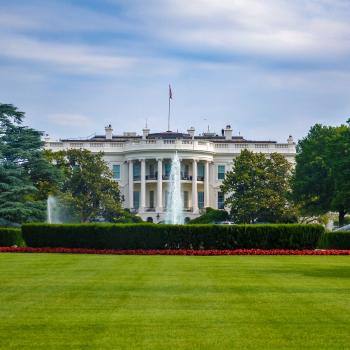
Ever since vaccination was deemed the path to salvation (i.e., return to “normalcy”) amidst the COVID-19 pandemic the anti-vaxxers have been out in full force, or maybe they always are. But average (i.e., non-anti-vax) Christians (such as myself), evangelical, Catholic, and otherwise, have also raised legitimate and important questions, both legal and ethical. Per usual, however, such considerations have been treated rather late, as in, after the vaccine (first Pfizer then Moderna then Johnson & Johnson) was being administered. Panic and confusion, both natural in these situations, make for bad analysis. The predominate, mainstream evangelical take invariably hinges on the lazy “love of neighbor” justification. (See e.g., this article at Public Discourse by Andrew Walker, Ben Mitchell, and Matthew Arbo. C.f. Jared Longshore’s response at Founders.) But my present interest lies elsewhere. As the vaccine rollout has gained steam talk of potential mandates has emerged. It behooves Christians to consider this question now, at the outset, as it were. This way we don’t fall back on lame proof texting when the issue is live.
Some predict that vaccination will be more or less enforced via private entities requiring their employees or affiliates to take it. This, however, may not be legally feasible, though many will voluntarily comply; all it takes is a slight nudge for most people. (And that is just fine, by the way. I’m not averse to the vaccine myself.) Other more direct options for increasing vaccine rates exist, however, and aren’t out of the realm of possibility. People aren’t unreasonable for being skeptical of a vaccine released at “warp speed.”
Some European countries are pioneering vaccine passports, a sort of soft enforcement measure that, nevertheless, is sure to spark controversy. The same incentive language has lately been heard from the White House and CDC, viz., if you get vaccinated then, maybe, you can gather with (vaccinated) friends and family for July 4th. On the more extreme (and chilling) end of the spectrum, since at least December, Spain has been keeping a registry of citizens who refuse the vaccine. After brief talk of a mandate in France–the bill was delayed after massive pushback–the leaders of France, Germany, and the U.K have all promised that immunization will remain voluntary (no such assurances have come from Spain). Vaccination requirements for infants had already been increased back in 2019 in both Italy and France. Whether COVID immunization will be included therein has not been made clear.
America, as always, differs from European nations in its organization and concomitant constitutional confines of authority. Whilst a federal vaccine mandate is very unlikely (even though some will fantasize about yet further extension of the commerce clause)–forced vaccination would almost certainly never happen though penalties for refusal to vaccinate could–federalism and the accompanying principle of equal sovereignty complicate things. As possessors of what is known as police power, states (rather than the federal government) are the natural and proper authorities to legislate for public health. If a vaccine mandate comes it will be through state legislatures.
As I argue in a recent paper, state-based vaccine mandates would be perfectly constitutional (per the famous Jacobson v. Massachusetts (1905) case, which remains good law). Jacobson has consistently been cited by courts to uphold vaccine mandates in various contexts. As recent as 2019, New York City required vaccination for measles during an outbreak, a public health order that survived legal challenge.
Not only does Jacobson (authored by the “great dissenter,” Justice Harlan) affirm state authority in this regard, it does so by reasoning from the interest of the common good–rightly conceived in its classical sense–which states are dutybound to pursue. Harlan’s opinion is well reasoned and stands in line with the tradition stretching back to Blackstone and Aquinas. Meaning, Harlan, who was a staunch Presbyterian his entire life, was drawing on theories and reasoning rooted in classical and Christian thought.
That being said, I further argue (apart from the Harlan opinions surveyed) that given recent history surrounding state enforcement of lockdowns, quarantine orders, and policies related to social distancing, and the blatant disregard for religious institutions therein, a vaccine mandate would be imprudent at this stage. Prudence, being the first of cardinal virtues, must characterize any good policy and is intricate to governance for the common good. The fragile state of public trust at present advises against state vaccine mandates, and this, if only for the sake of self-interest on the part of public officials. (See the full paper here. It was written back in December, so its a little dated, but the central thesis/argument stands.)
(For much shorter treatment, see here. Note too, however, that most states have adopted some sort of religious/personal belief exemption in the case of mandatory vaccinations for schools. Whether those same exemptions would apply during a medical emergency is less than clear. Many European countries have similar mandates attached to school attendance.)
Image credit: @ivvndiaz/Unsplash












